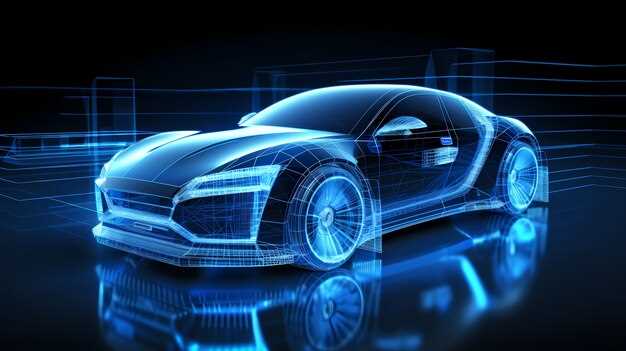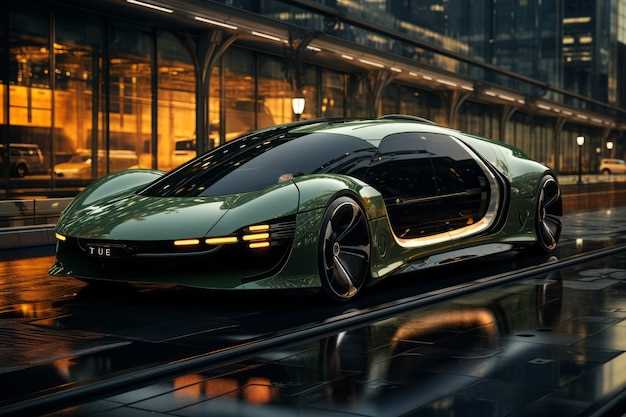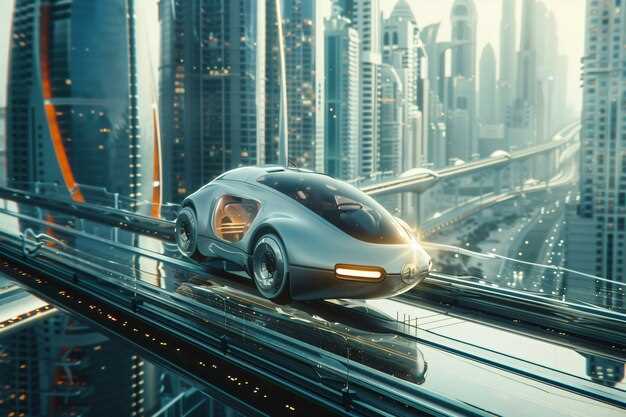
The 2025 Auto Show has once again captivated automotive enthusiasts with a stunning showcase of concept cars that push the boundaries of design and innovation. These vehicles represent the future of the automobile industry, integrating cutting-edge technology with visionary aesthetics. Each model unveiled tells a unique story of what is possible in the realm of automotive engineering, presenting exciting glimpses into the next generation of cars.
This year’s lineup includes a diverse array of concept cars, each designed to address the evolving needs and desires of modern drivers. From electric powertrains to autonomous capabilities, these prototypes highlight the industry’s commitment to sustainability and efficiency. The designers and engineers behind these concepts have poured their creativity into creating vehicles that are not just modes of transportation, but also reflections of personal identity and lifestyle.
As we delve into the highlights of the 2025 Auto Show, we will explore some of the most groundbreaking concept cars that made their debut. These creations not only showcase advanced features but also hint at the future trends that may define the automotive landscape in the years to come. Get ready to discover the remarkable innovations that promise to revolutionize how we think about cars and driving.
Innovative Features That Define the Latest Concept Cars

The 2025 Auto Show showcased a range of cutting-edge concept cars, each packed with innovative features designed to enhance the driving experience and adapt to future mobility trends.
-
Autonomous Driving Technology:
Many concept cars introduced advanced autonomous driving systems that utilize AI and machine learning to improve safety and provide a hands-free driving experience. These systems are designed to navigate urban environments and recognize obstacles in real-time.
-
Electric Powertrains:
The shift to sustainability is evident, with numerous concept cars featuring fully electric powertrains to reduce carbon emissions. Battery technology advancements enable longer ranges and faster charging times, making electric vehicles more practical for everyday use.
-
Augmented Reality Displays:
Several auto manufacturers presented concept cars equipped with augmented reality (AR) head-up displays. These displays project vital driving information onto the windshield, allowing drivers to access navigation, speed, and safety alerts without taking their eyes off the road.
-
Multi-Sensory Interiors:
Concept vehicles introduced multi-sensory experiences, integrating scents, audio, and tactile feedback to enhance passenger comfort. Customizable ambient lighting and soundscapes create a personalized atmosphere tailored to individual preferences.
-
Advanced Connectivity:
Innovative connectivity features in concept cars enable seamless integration with smartphones and smart home devices. This technology allows users to control vehicle settings, access entertainment, and communicate with other vehicles, enhancing overall convenience.
-
Biometric Security Systems:
To enhance security, various concept cars introduced biometric technology, such as fingerprint or facial recognition, allowing only authorized users to operate the vehicle. This feature aims to reduce auto theft and increase user confidence.
-
Eco-Friendly Materials:
A commitment to sustainability is reflected in the use of eco-friendly materials for car interiors and exteriors. Many concept cars featured recycled and natural materials, reducing the environmental impact of production.
These innovative features not only showcase the technological advancements within the auto industry but also highlight a shift towards sustainability and enhanced user experiences in future vehicles.
How Concept Cars Influence Future Production Models
Concept cars play a pivotal role in shaping the future of the automotive industry. These innovative designs, often showcased at auto shows, serve as a testing ground for new technologies, materials, and design philosophies. By pushing the boundaries of creativity, concept cars inspire manufacturers to rethink conventional models and incorporate advanced features into their production lines.
Design Innovation is one of the most significant ways concept cars influence future production models. The striking aesthetics of concept vehicles often lead to the adoption of new styling cues in mass-produced cars. Automotive designers observe consumer reactions to these futuristic designs, allowing them to gauge public interest and incorporate popular elements into forthcoming models.
Another crucial aspect is technological advancement. Concept cars are typically equipped with cutting-edge technologies that may not be viable at the time of their unveiling. However, as these technologies evolve, they often find their way into production vehicles. Electric drivetrains, autonomous driving systems, and advanced infotainment options showcased in concept vehicles frequently become standard features in future models.
Market Trends also dictate the development of production vehicles. Auto manufacturers closely monitor the reception of concept cars to identify emerging trends and preferences among consumers. The interest generated at auto shows can lead to rapid shifts in brand strategies, ensuring that future models align with what potential buyers desire.
In summary, concept cars serve as a crucial bridge between imagination and reality in the automotive world. By influencing design, technology, and market trends, they help shape the next generation of production models, ultimately enhancing the overall driving experience.
Key Trends and Technologies Highlighted at the 2025 Auto Show

The 2025 Auto Show showcased an exciting array of concept cars that underscored significant trends in the automotive industry. One of the most notable advancements is the integration of artificial intelligence in vehicle design and functionality. AI systems in these concept cars offer enhanced driver assistance, personalized driving experiences, and improved safety features, setting the groundwork for future automotive innovations.
Another major trend is electrification, with many manufacturers unveiling electric concept cars equipped with cutting-edge battery technology. These vehicles promise longer ranges and faster charging times, addressing consumer concerns about electric vehicle convenience. Additionally, advancements in solid-state batteries and energy recovery systems were prominently featured, highlighting the shift towards more sustainable energy solutions in the auto industry.
Connectivity has also taken center stage, as concept cars are increasingly equipped with sophisticated infotainment systems and vehicle-to-everything (V2X) communication capabilities. This allows real-time interaction with other vehicles and infrastructure, enhancing traffic management and streamlining the driving experience.
Finally, the emphasis on autonomous driving technology continues to grow. Many of the concept cars presented at the show demonstrated the potential for fully autonomous systems, equipped with Lidar and advanced sensor technologies. These innovations aim to make self-driving vehicles safer and more reliable, paving the way for widespread adoption in the coming years.
